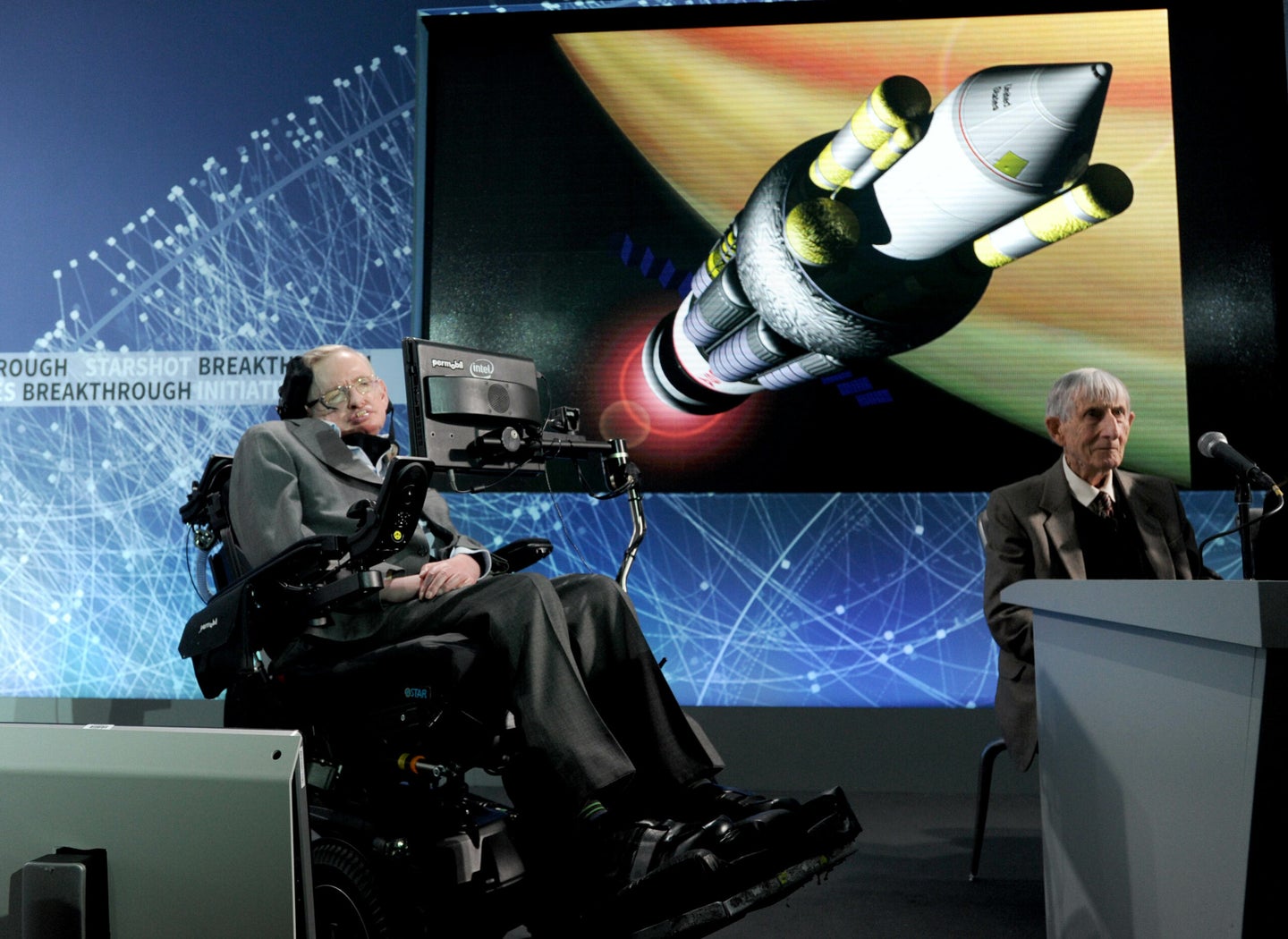Stephen Hawking Answers Our Questions On The Breakthrough Starshot Initiative
Here's what the astrophysicist says about the future of space exploration

Yesterday, Professor Stephen Hawking joined Yuri Milner, among others, onstage for the announcement of Breakthrough Starshot. The $100 million initiative aims to develop microchip-sized space probes and shoot them into space with a high-powered laser, sending them hurtling toward to Alpha Centauri, the closest star system to our own at a distance of 4.37 light years.
The initiative is only focused on feasibility right now. Prototypes and exploration-grade probes are likely decades away, but if it all works out (a big if, admittedly), the journey would take 20 years, down from about 30,000 with current technology.
I had the opportunity to send questions to Prof. Hawking in advance of the announcement, and though he didn’t cite Popular Science directly in his public responses yesterday, he did answer some of our top questions about the Starshot initiative and the future of space exploration. The first four questions are ones I sent to Prof. Hawking – the rest were asked by other sources.
Popular Science: What could the development of new methods of propulsion mean for humankind’s future in space?
Hawking: Without new methods of propulsion we simply cannot get very far. Not unless we are prepared to spend thousands of years in flight. Light-driven nanocraft are the most pragmatic technology available. Fusion and antimatter are a long way in the future.
PS: In your estimation, what’s the probability of finding intelligent alien life and why?
H: The probability is low…probably. But the discoveries of the Kepler mission suggest that there are millions of habitable planets in our galaxy alone. And there are at least 100 billion galaxies in the visible universe. So it seems likely that there are others out there.
PS: If we find intelligent alien life what should we do next?
H: We should hope that they don’t find us.
PS: Why should humankind aspire to reach another star system?
Firstly, there are no greater heights to aspire to than the stars. Secondly, it is unwise to keep all our eggs in one fragile basket. Life on Earth faces dangers from astronomical events like asteroids or supernovas, and other dangers from ourselves. If we are to survive as a species, we must ultimately spread to the stars.
Do you have any theories about what intelligent life might look like?
Judging by the election campaign, definitely not like us.
What is Professor Hawking hoping to get out of this project?
Ultimately, a successful launch to Alpha Centauri within a generation.
What scientific finding in your life are you most proud of?
I would like to be remembered for my work on Hawking Radiation and the entropy of black holes.